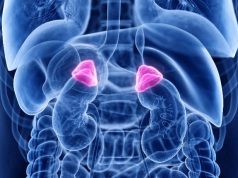Reduced risk seen for composite of cardiovascular death, myocardial infarction, and stroke
By Elana Gotkine HealthDay Reporter
MONDAY, July 10, 2023 (HealthDay News) — For patients with coronary artery disease (CAD), P2Y12 inhibitor monotherapy is associated with a lower risk for cardiovascular death, myocardial infarction, and stroke compared with aspirin monotherapy, according to a study published online in the July 11 issue of the Journal of the American College of Cardiology.
Felice Gragnano, M.D., Ph.D., from the University of Campania Luigi Vanvitelli in Naples, Italy, and colleagues conducted a patient-level meta-analysis of data obtained from seven randomized trials comparing P2Y12 inhibitor monotherapy to aspirin monotherapy for the prevention of cardiovascular events in patients with established CAD. The analysis included 24,325 participants: 12,178 were assigned to receive P2Y12 monotherapy (62.0 percent clopidogrel and 38.0 percent ticagrelor), and 12,147 were assigned to receive aspirin.
The researchers found that over two years, the risk for the primary outcome (composite of cardiovascular death, myocardial infarction, and stroke) was lower with P2Y12 inhibitor monotherapy than with aspirin (hazard ratio, 0.88), which was mainly due to less myocardial infarction (hazard ratio, 0.77). The risk for major bleeding was comparable between the groups, and net adverse clinical events were lower with P2Y12 inhibitors (hazard ratio, 0.89). Across prespecified subgroups and types of P2Y12 inhibitors, the treatment effect was consistent.
“Based on available randomized evidence, long-term P2Y12 inhibitor monotherapy may be warranted instead of long-term aspirin monotherapy for secondary prevention in patients with CAD,” the authors write.
Several authors disclosed ties to the pharmaceutical industry.
Abstract/Full Text (subscription or payment may be required)
Editorial (subscription or payment may be required)
Copyright © 2023 HealthDay. All rights reserved.








